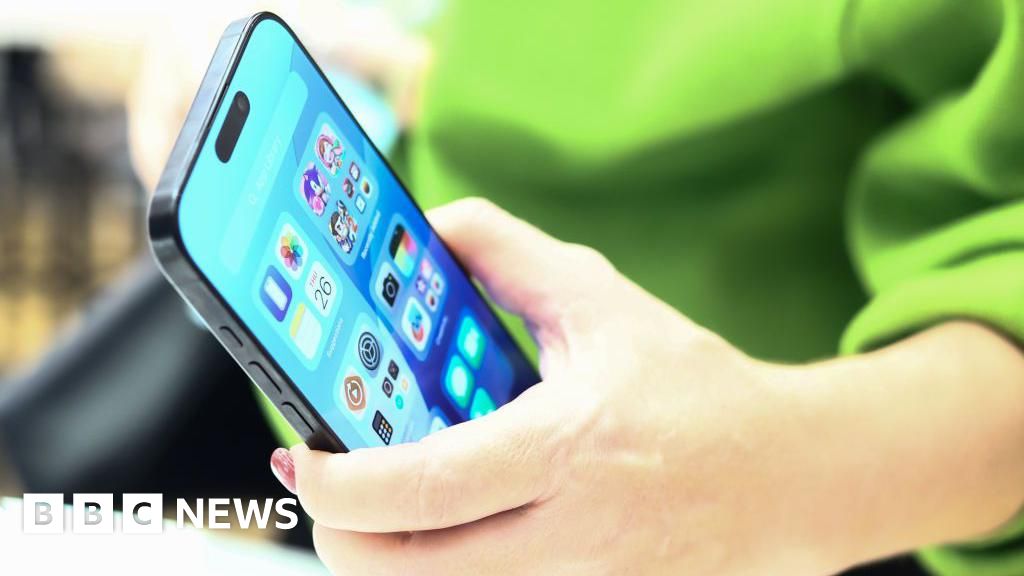 Getty Images
Getty ImagesApple has suspended a new artificial intelligence (AI) feature that drew criticism and complaints for making repeated mistakes in its summaries of news headlines.
The tech giant had been facing mounting pressure to withdraw the service, which sent notifications that appeared to come from within news organisations’ apps.
“We are working on improvements and will make them available in a future software update,” an Apple spokesperson said.
Journalism body Reporters Without Borders (RSF) said it showed the dangers of rushing out new features.
“Innovation must never come at the expense of the right of citizens to receive reliable information,” it said in a statement.
“This feature should not be rolled out again until there is zero risk it will publish inaccurate headlines,” RSF’s Vincent Berthier added.
False reports
The BBC was among the groups to complain about the feature, after an alert generated by Apple’s AI falsely told some readers that Luigi Mangione, the man accused of killing UnitedHealthcare CEO Brian Thompson, had shot himself.
The feature had also inaccurately summarised headlines from Sky News, the New York Times and the Washington Post, according to reports from journalists and others on social media.
“There is a huge imperative [for tech firms] to be the first one to release new features,” said Jonathan Bright, head of AI for public services at the Alan Turing Institute.
Hallucinations – where an AI model makes things up – are a “real concern,” he added, “and as yet firms don’t have a way of systematically guaranteeing that AI models will never hallucinate, apart from human oversight.
“As well as misinforming the public, such hallucinations have the potential to further damage trust in the news media,” he said.
Media outlets and press groups had pushed the company to pull back, warning that the feature was not ready and that AI-generated errors were adding to issues of misinformation and falling trust in news.
The BBC complained to Apple in December but it did not respond until January when it promised a software update that would clarify the role of AI in creating the summaries, which were optional and only available to readers with the latest iPhones.
That prompted a further wave of criticism that the tech giant was not going far enough.

Apple has now decided to disable the feature entirely for news and entertainment apps.
“With the latest beta software releases of iOS 18.3, iPadOS 18.3, and macOS Sequoia 15.3, Notification summaries for the News & Entertainment category will be temporarily unavailable,” an Apple spokesperson said.
The company said that for other apps the AI-generated summaries of app alerts will appear using italicised text.
“We’re pleased that Apple has listened to our concerns and is pausing the summarisation feature for news,” a BBC spokesperson said.
“We look forward to working with them constructively on next steps. Our priority is the accuracy of the news we deliver to audiences which is essential to building and maintaining trust.”
Analysis: A rare U-turn from Apple
Apple is generally robust about its products and doesn’t often even respond to criticism.
This simple statement from the tech giant speaks volumes about just how damaging the errors made by its much-hyped new AI feature actually are.
Not only was it inadvertently spreading misinformation by generating inaccurate summaries of news stories, it was also harming the reputation of news organisations like the BBC whose lifeblood is their trustworthiness, by displaying the false headlines next to their logos.
Not a great look for a newly-launched service.
AI developers have always said that the tech has a tendency to “hallucinate” (make things up) and AI chatbots all carry disclaimers saying the information they provide should be double-checked.
But increasingly AI-generated content is given prominence – including providing summaries at the top of search engines – and that in itself implies that it is reliable.
Even Apple, with all the financial and expert firepower it has to throw at developing the tech, has now proved very publicly that this is not yet the case.
It’s also interesting that the latest error, which preceded Apple’s change of plan, was an AI summary of content from the Washington Post, as reported by their technology columnist Geoffrey A Fowler.
The news outlet is owned by someone Apple boss Tim Cook knows well – Jeff Bezos, the founder of Amazon.


